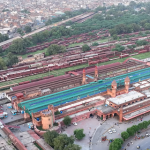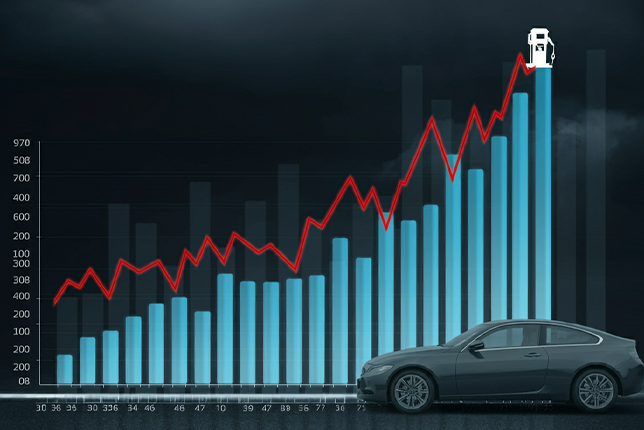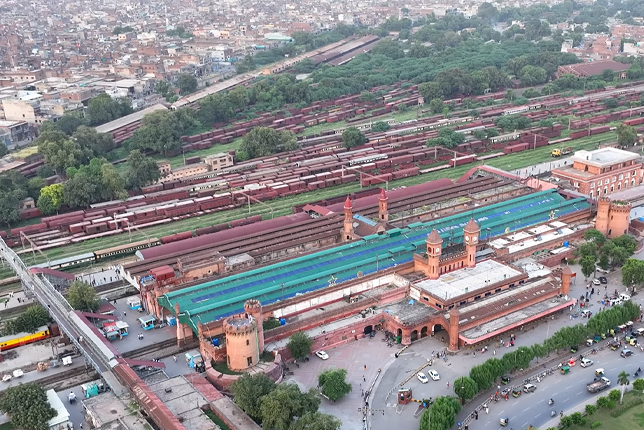The price of petrol is always an issue throughout Pakistan. It has been a significant concern for citizens, businessmen, and policy framers alike.
The increased petrol prices always shake you, whether you have to fill up your car fuel tank or run a business that is highly reliant on fuel. However, have you ever wondered why petrol prices fluctuate so much? Let’s break down what shapes key prices today.
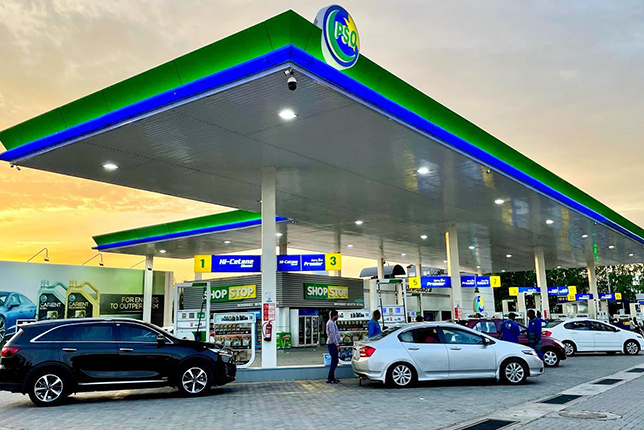
Historical Trends in Petrol Prices
Over the past few years, petrol prices have become anything but static. History has reminded us of substantial increases and sometimes decreases that may have tended to be blamed on global economic changes, wars, and oil supply shifts. During the early 2000s, prices were usually low, concerning the acute spikes we are witnessing today.
Right now, current petrol prices in Pakistan are at their peak. The continuing rise fuels the worst economic conditions and financial crises. Today’s prices compared to 5 or 10 years ago underline how outgrown the fuel price has become.
Understanding the Fluctuations
Regular fluctuation of petrol prices causes frustration and creates a hopeless situation. Unfortunately, we cannot improve it as factors like currency exchange rates, demand, and geopolitical tensions contribute to the fluctuation. Moreover, our weak current value against the Dollar increases import costs and contributes to a petrol price hike.
Global Energy Crisis
The global energy crisis has led to a continuous surge in fuel prices in Pakistan. Various factors, such as disrupted supply chains, wars, and political instability in regions producing oil, have raised fuel prices. Pakistan, one of the biggest oil importers, is heavily impacted by these global shifts, and it continues.
Internation Crude Oil and Petrol Prices
The global price of oil is the most important exogenous factor affecting the local market price of petrol. Hence, any rise or fall in the price of crude oil in the international markets would automatically spill over into the local market. Since Pakistan is a net importer of petroleum products, any fluctuation in the global oil market—particularly from oil-producing countries that belong to OPEC—automatically dictates fuel prices in the local market.
Government Policies on Petrol Pricing
The government massively affects the current price of petrol per litre in Pakistan due to the policies on taxation, subsidization, and import tariffs. The government has used fuel subsidies as a relieving factor for the general public to bear the commodity price for the last few years. However, such a subsidy keeps fluctuating based on economic factors.
Apart from that, the government also readjusts the prices occasionally to conform to international trends and domestic requirements. This balancing act is compassionate, serving the twin purpose of keeping the prices at reasonable levels and maintaining national revenues derived from fuel taxes at a stable level.
Economic Impact of Prices of Petrol
A hike in petrol price doesn’t only affect drivers or vehicle owners; it contributes to a mass increase in inflation because of an increase in transportation and operational costs of products and services. This hike is the leading cause of the country’s inflation, business failures, and the masses’ frustration. It creates a ripple effect, impressing almost every aspect of daily living.
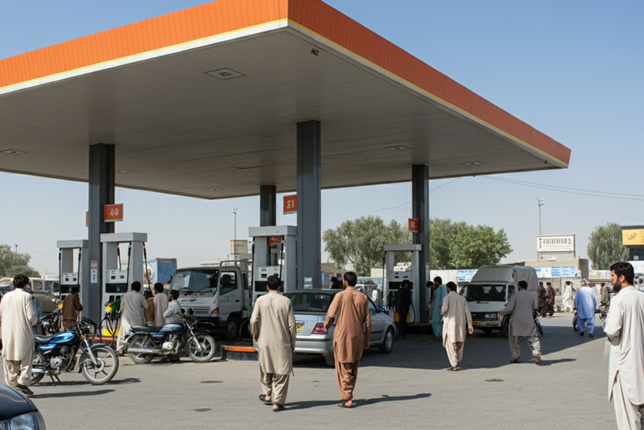
What Does It Mean By “Today’s Petrol Price in Pakistan”?
Like gold, petrol prices are also determined daily. What is today’s petrol price? It depends on multiple factors. As you have observed, in 2024, the cost of petrol in Pakistan was sporadic due to global oil market factors, policies, and internal characteristics such as inflation. People affected greatly by petrol prices in Pakistan should be updated about it regularly. There are various free services which let you know the latest petrol prices, and you can easily take advantage of them.
Factors That Affect Petrol Prices
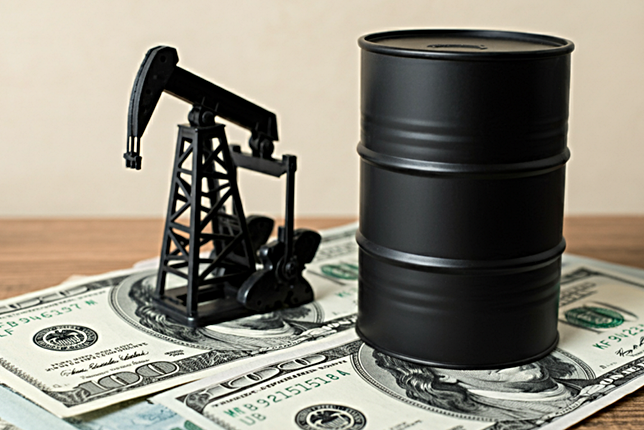
The following factors are vital in determining daily petrol prices in Pakistan.
International Oil Market and Petrol Prices
The international oil market is one of the biggest reasons for the volatility of petrol prices. It keeps dictating countries to determine their petrol prices.
Impact of Crude Oil Prices
The crude oil prices also affect the petrol prices. It is directly proportion to petrol prices. If it rises, petrol prices in Pakistan will increase too.
Currency Exchange Rates
The fuel costs heavily depend on the currency exchange rates, too. Since 1947, the Pakistan Rupees have been diminishing against the Dollar, contributing to higher petrol prices.
Role of PSO in Petrol Pricing
As the country’s most significant oil marketing company, PSO is supposed to play a leading role in defining the price of petrol. It involves undertaking the lion’s share of petroleum imports and leading the market in its price structure. The petrol price determined by PSO sets a benchmark for most other petrol players in the marketplace.
In Pakistan, PSO is an influencer that directly affects petrol prices. A slight change in PSO petrol price leads to a change in the market. Bein a state company; its pricing strategies are pegged to government regulations and mirror international oil price trends. They are a critical player burdened with the responsibility of price stability or volatility.
The Importance of Petrol Prices in Karachi
As Pakistan’s biggest and most metropolitan city, it plays an integral part in determining petrol prices. While there are slight regional differences, the petrol price in Karachi follows almost the same pattern as that of other main cities. Karachi, one of the main strongholds of Pakistan’s economic activity, often has a higher demand for fuel, which sometimes creates a rise in local prices.
While the price of petrol in Karachi coincides with the national rate, local taxes and means of transport can create slight differences compared to rural areas.
Anticipated Petrol Price in Pakistan 2024
Petrol prices are the biggest concern of the masses in Pakistan. They wish to peek at future prices and strategize their finances accordingly, but unfortunately, there is no way one could predict it. We all know that unless there is a big crack-down on world crude prices or an upspring in the Pakistani rupee, these prices will keep on escalating.
The government plays a vital role in Pakistan’s current oil prices. Its reforms, taxes, and subsidies shape the fuel prices that impact the masses. Recently, Pakistan’s government has implemented subsidies on fuel prices to give some relief to the ordinary people. It helped in lowering the petrol rates.
Every sign indicates a continued increase in fuel prices in the future. With more countries worldwide tilting toward renewable energy, we hope that someday petrol prices may stabilize and relieve petrol consumers. Meanwhile, we should also consider alternative fuel sources.
Coping with Rising Prices of Petrol
The rising petrol prices are challenging for an average consumer to cope with. Some of the best ways include cutting unnecessary travelling or exploring the option of carpooling. The government has also initiated some measures to lessen the burden on low-income families, but much is still expected from them.
Alternatives to Petrol
The increased petrol price has begun to force many consumers to consider petrol alternatives seriously. People must use solar energy, LPG, or CNG to keep their businesses running.
Conclusion
From the world’s strategic oil market to the local government’s policy, factors that may influence the petrol price in Pakistan are diverse. As prices will not likely decrease soon, consumers and companies must learn to live with this new reality. Though the future is uncertain, clarity on critical drivers of fuel price may provide a way out from this maze.
For in-depth insights and the latest trends in lifestyle visit RealStateShop Lifestyle blogs for expert tips and updates.



